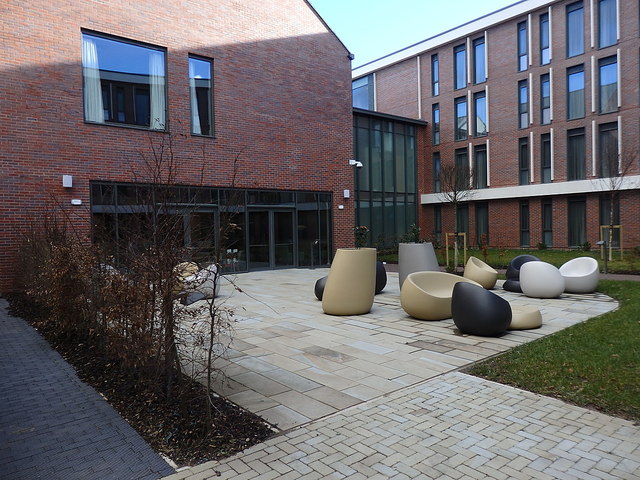
Two Birmingham MPs are asking the University of Birmingham’s (UoB) wholly owned Edgbaston Park Hotel to start negotiations with the unions to prevent the possible loss of 19 jobs
Preet Gill, Labour MP for Edgbaston, whose parliamentary constituency covers the University and Jack Dromey, Labour MP for Erdington, are urging the employer to use the recent government’s Job Support Scheme (JSS). This scheme provides government financial support to staff who work reduced hours.
They are asking the University to consider temporary direct financial support from the university and extend the consultation period to at least 60 days. The University has stated that the hotel is a separate employer. The union UNISON counters that the University controls the hotel and can direct its operations and policies. The physical hotel building is owned by the University and leased to Edgbaston Park Hotel Ltd which runs the hotel.
UNISON represents many at the hotel and has called on the employer to avoid redundancies, otherwise the union intends to declare a formal dispute. The possibility of industrial action is also being considered.
One of the hotel employees told Redbrick: ‘We’re all really worried about the situation and hoping the hotel will do everything they can to avoid anyone losing their job.’
We’re all really worried about the situation and hoping the hotel will do everything they can to avoid anyone losing their job
The hotel management have stated that they ‘appreciate that this is a very difficult time for staff’ and will provide ‘support for all staff affected by the proposals put forward.’
Around 40 University staff transferred from the previous University Conference Centre to the new Edgbaston Park Hotel Ltd company, retaining substantial parts of their University contract.
For the around 60 newly employed staff at the hotel, new contracts meant far less favourable terms in terms of holidays, pensions and job security.
The hotel management says that ‘productive discussions are ongoing’ and they are ‘currently examining the JSS in detail.’ UNISON agrees that productive discussions have taken place regarding the departments where former University employees are based. The union says that both the fact that some staff have left during consultation and discussions around JSS have started has helped the process. The longer consultation period of 60 days in these areas has been useful, they say.
For some newly hired workers under threat of redundancy, negotiations are continuing. The University does not recognise UNISON as a negotiator on behalf of this group of workers.
UNISON has stated that generally extensions of a 30 days consultation are a good idea. Many in this group of workers are facing an end to their 30 day consultation and face redundancy.
The University Treasurer has called the hotel a success and Vice-Chancellor David Eastwood said he had received many comments on the ‘warmth and professionalism of the welcome and service.’
The £25 million hotel has won several awards and has an unusually high A rating for heat efficiency.
On the Hotel.com website in the last 12 months, the hotel received an excellent customer rating. Around half the comments left mentioned staff professionalism and friendliness.
UNISON fears that redundancies would undermine staff morale and be detrimental to the hotel’s business which uses University branding.
The union expects at least a 10% staff turnover in hospitality areas, providing the University a way to adjust staffing. The union asserts that the University could then save on redundancy costs and avoid adverse publicity and reputational damage. For some months the University has had a near freeze on support staff enabling staff reductions without redundancies. The University has enabled some canteen workers to now work as COVID marshals.
Manchester University’s separate hotel business UMC Ltd closed in December 2019 and redundant staff could apply preferentially for University jobs, unlike at UoB. Manchester University reduced agency staff to create more opportunities for UMC Ltd staff. Additionally Manchester University made enhanced redundancy payments. UMC workers continued to be part of the University pension scheme, whereas Edgbaston Park employees could not. Workers in both Manchester and Birmingham companies received fewer holidays than their University equivalents.
The employment terms for the University’s subsidiary companies are subject to local agreement and can vary between universities.
According to government rules, more than 19 redundancies at a company requires a longer and deeper consultation process than otherwise.
Addressing the request for direct financial support to the hotel, a statement from the University and Hotel Board says: we ‘have already agreed additional direct support to help the Hotel through these difficult times.’
UNISON contends that the direct financial support during the pandemic was given before the announcement of potential redundancies. It says the University has not offered financial support as part of the consultation. It is common for subsidiaries to receive support in anticipation of profits being transferred as tax free Gift Aid to the University in future years, UNISON asserts.
The charity commissioner recently published guidance about commercial subsidiaries of a charity such as a University. Such a connection, it says, can derive new opportunities and benefits.
Liked this article? Here are some more from Redbrick News:
COVID-19 Home Testing Mix Up Puts Students At Risk
Comments